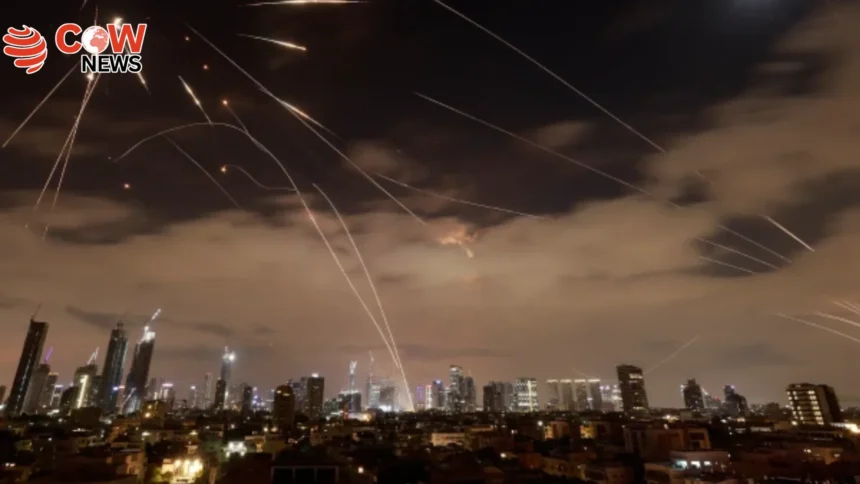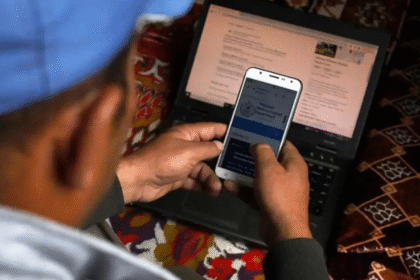Tehran/Jerusalem (TheCOWNews Digital)Tensions in the Middle East escalated dramatically as Iran launched the tenth wave of its military campaign, Operation Waad-e-Sadiq III, targeting multiple locations across Israel with a fresh barrage of ballistic missiles. In a bold statement, Iran’s Islamic Revolutionary Guard Corps (IRGC) claimed “complete control” over Israeli airspace, declaring Israel’s missile defense systems ineffective.
The recent assault marks a historic turn in the ongoing confrontation between the two regional powers. According to IRGC sources, 20 “Fateh” missiles were launched overnight, piercing Israel’s air defense shields and striking key targets. Air raid sirens blared across Israel, including in Tel Aviv, causing widespread panic. Civilians were instructed to take shelter in underground bunkers.
Explosions rocked several urban centers, and reports from Israeli media confirmed heavy damage in Tel Aviv, including a fire that engulfed a major parking facility. Haifa, a northern Israeli city, also witnessed direct hits, notably the Ramat David airbase and Haifa Refinery, prompting an emergency shutdown and resulting in the reported deaths of three refinery workers.
Iranian media touted the attacks as a significant military victory. A statement released by the IRGC read:
“Our Fateh missiles have successfully penetrated Israel’s air defense systems, striking their intended targets with precision. This confirms our air dominance and sends a clear message of Iranian power and determination.”
In contrast, Israeli authorities have provided limited information due to national security protocols. However, local news outlets reported at least 8 Israeli casualties and over 300 injuries resulting from the missile strikes. There were also unconfirmed reports of structural collapses in southern and central Israel.
The situation has raised global concern. U.S. President Donald Trump, speaking from Washington, reiterated support for Israel but simultaneously claimed the United States had “full control over Iranian airspace,” calling on Tehran to surrender unconditionally. Iranian officials, however, dismissed the statement and doubled down on their offensive strategy.
A spokesperson for the Iranian Supreme Security Council warned of continued assaults, stating:
“Today marks the fourth and most dangerous day. By nightfall, Israel will experience daylight in fire and destruction.”
Iran’s military also confirmed the ninth wave of the operation had struck Ramat David airbase just hours before the tenth began. Israeli Prime Minister Benjamin Netanyahu responded with a grave warning, urging civilians in Tehran to evacuate as Israel prepares for a “massive counter-offensive.”
Tensions remain at a boiling point. Military analysts now fear that both nations are edging closer to a full-scale regional war, one that could draw in global superpowers and reshape the geopolitical balance of the Middle East.
With missile exchanges intensifying and neither side willing to back down, the next 24 hours are expected to be critical in determining the trajectory of this deepening conflict.







